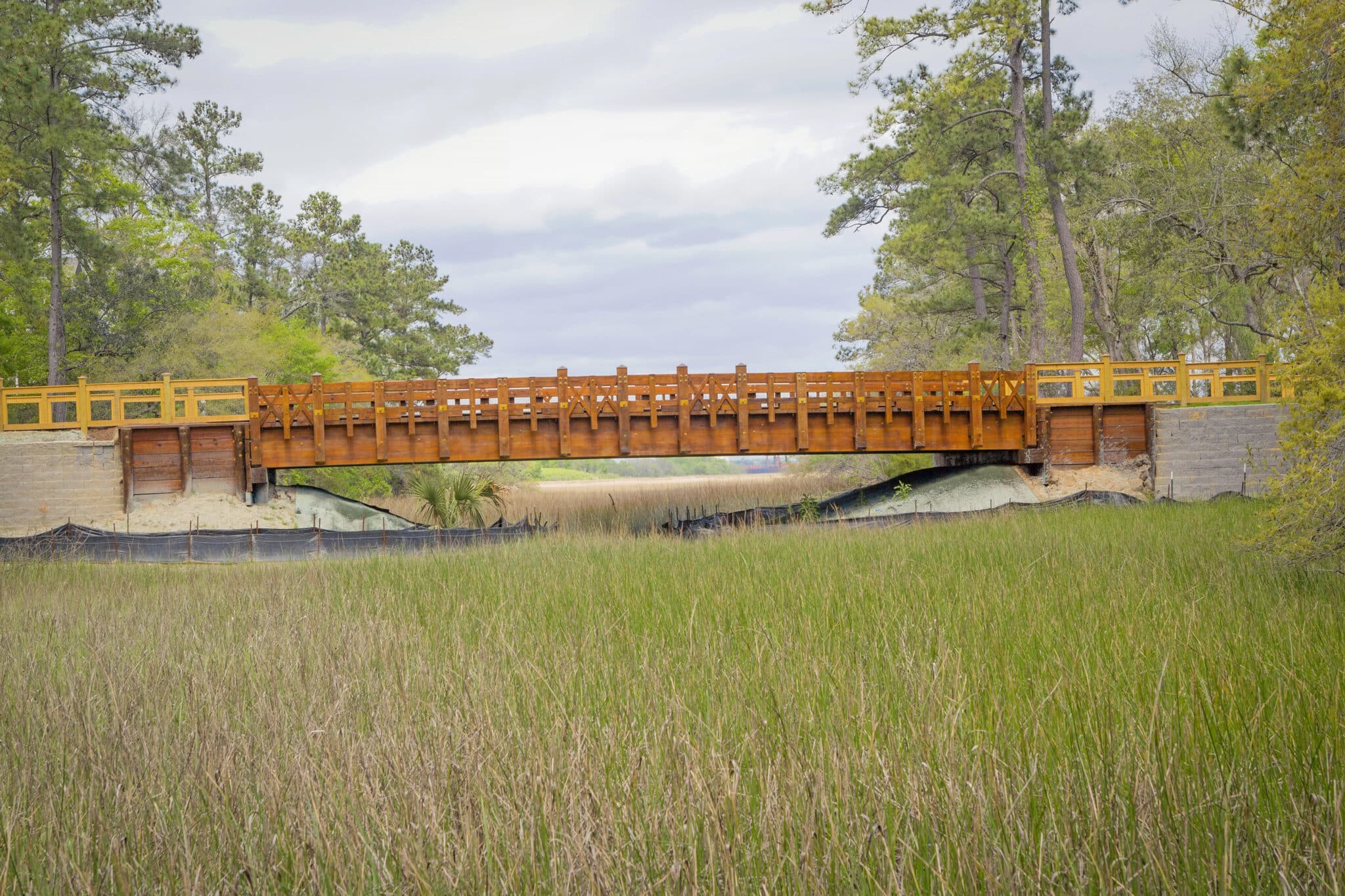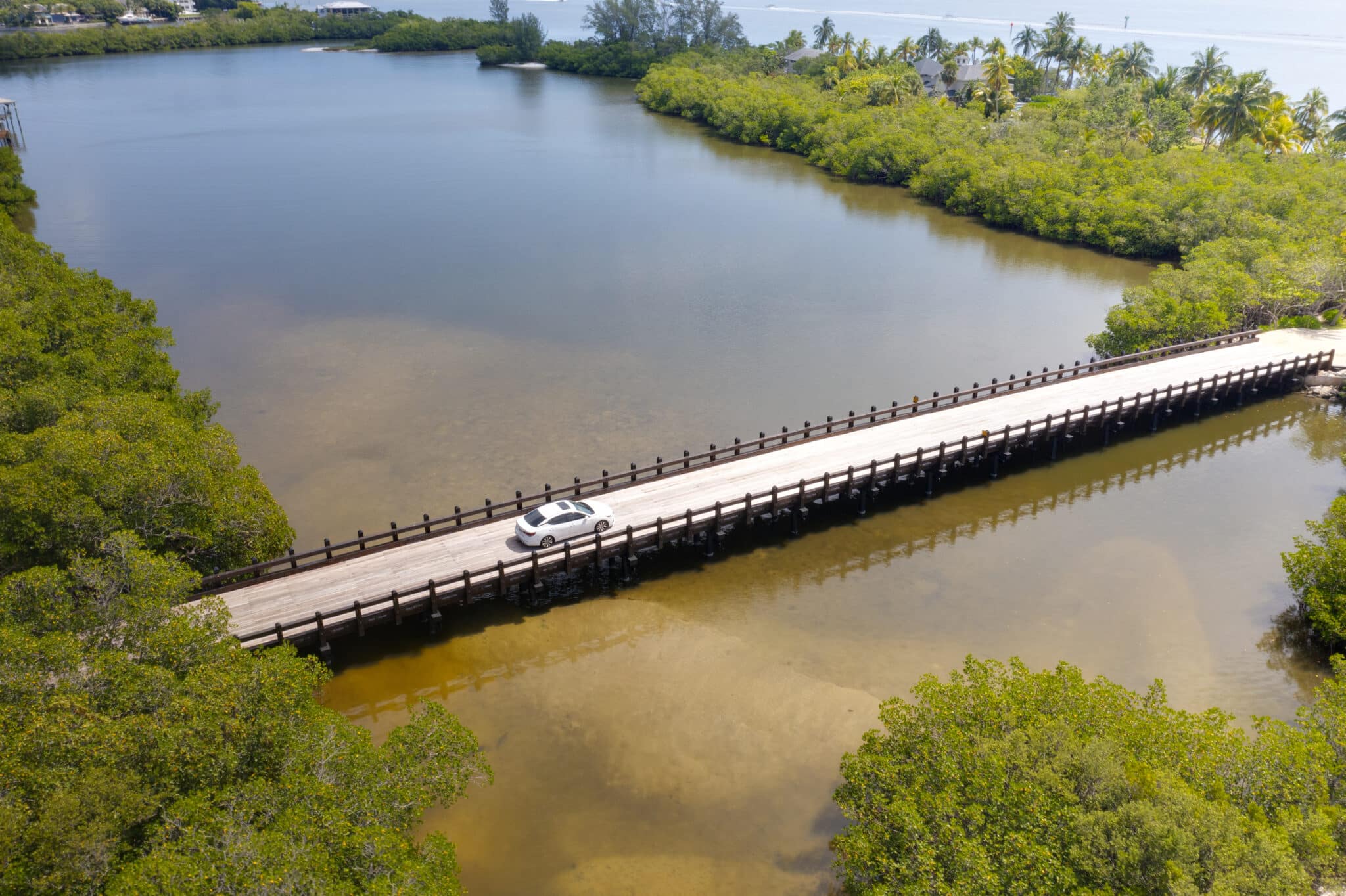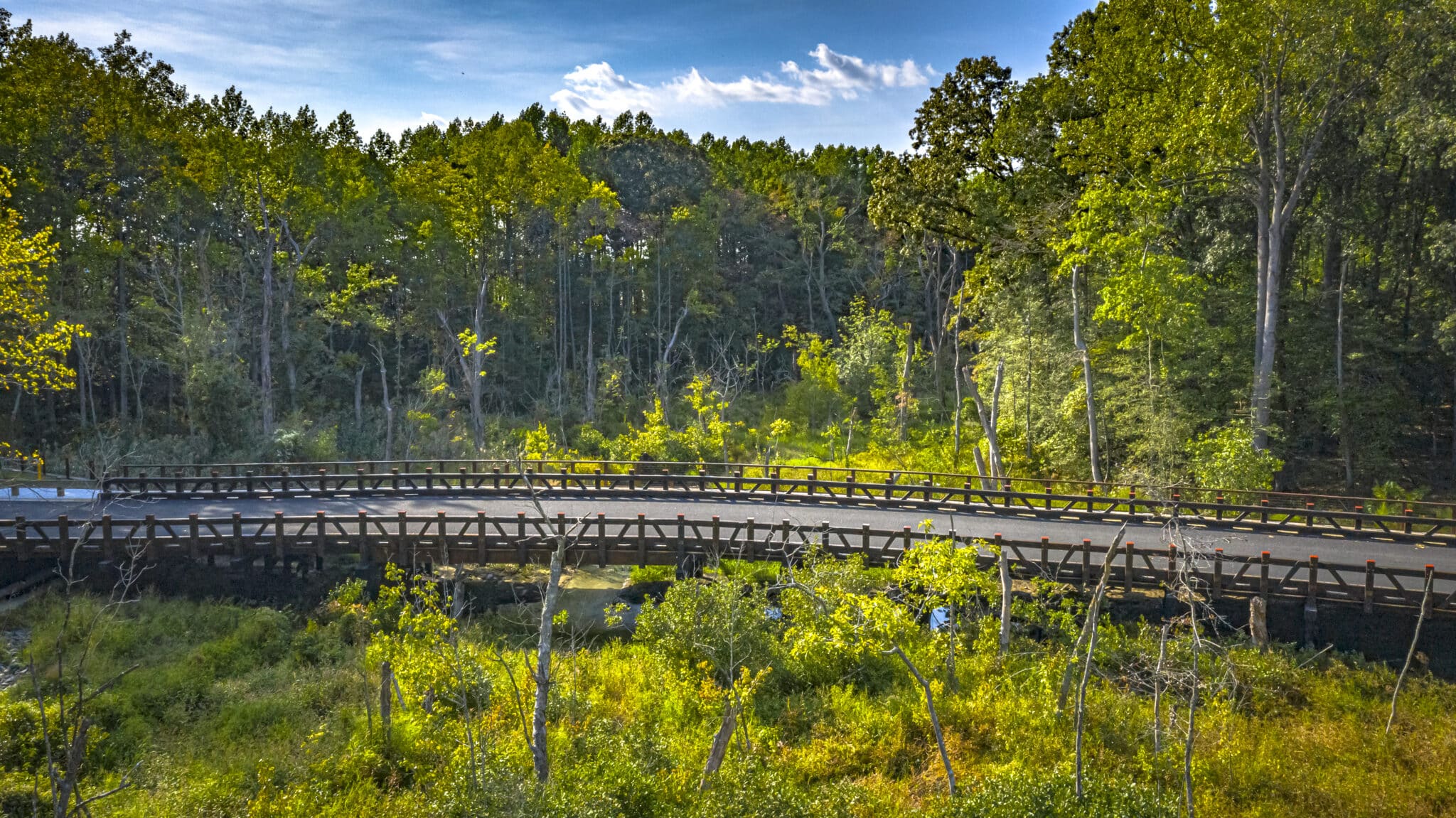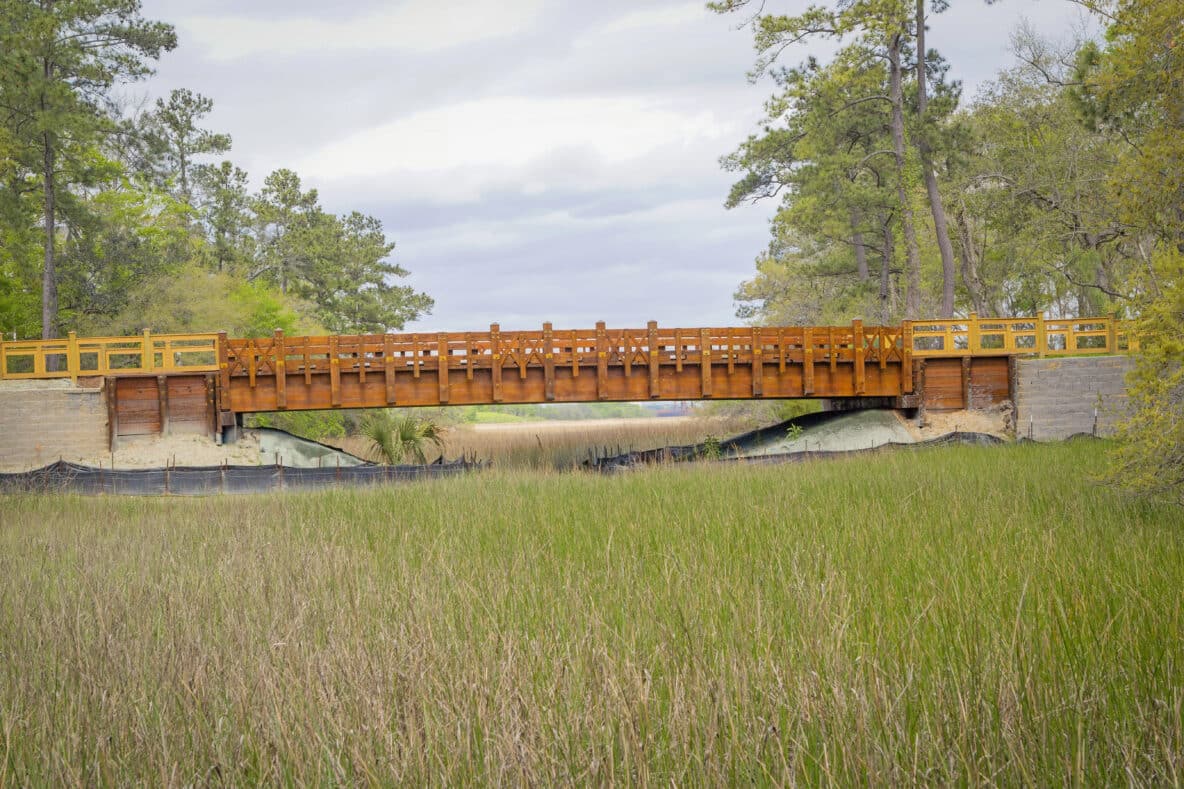
Wetland Friendly Land Development
Land developers often face the challenge of balancing infrastructure expansion with environmental preservation. Wetlands, which serve as vital ecosystems, are frequently located within prime development areas, requiring innovative solutions to maintain both ecological and economic value. Sustainable wetland crossings, such as timber bridges and boardwalks, provide a means to develop land responsibly while protecting natural resources. We'll take a look at how timber bridges maximize land use potential while ensuring environmental compliance.
Balancing Development & Wetland Preservation
1. The Importance of Wetland Protection in Land Development
Wetlands play a crucial role in water filtration, flood control, and biodiversity conservation. However, traditional land development practices often lead to habitat destruction, soil erosion, and regulatory hurdles. By incorporating sustainable wetland crossings, developers can enhance property value while mitigating environmental impact.
2. Regulatory Considerations for Wetland Crossings
Navigating wetland development requires compliance with environmental regulations set by agencies such as the U.S. Environmental Protection Agency (EPA) and the U.S. Army Corps of Engineers (USACE). Developers must:
- Obtain appropriate permits for wetland crossings
- Implement mitigation strategies to offset ecological impact
- Follow best management practices to prevent erosion and habitat loss.
How Timber Bridges Improve Land Utilization
1. Creating Access To Previously unusable areas
Timber bridges and boardwalks enable safe and sustainable access to wetlands, allowing developers to utilize previously inaccessible land. Whether for residential, commercial, or recreational purposes, timber structures facilitate connectivity while preserving wetland integrity.
2. Increasing Property Value with Eco-Friendly Infrastructure
Sustainable design elements appeal to environmentally conscious buyers and investors. Incorporating timber bridges into a development plan enhances property aesthetics and functionality, leading to increased market value and community appeal.
3. Enhancing Aesthetics & Community Appeal
Unlike steel or concrete structures, timber bridges blend seamlessly with natural landscapes. Their warm, organic appearance fosters a connection with nature, making developments more attractive to residents, visitors, and investors.
York Bridge Concepts: The leader in Wetland-Friendly Construction
1. Environmentally Responsible Construction Techniques
York Bridge Concepts (YBC) employs specialized construction methods to ensure minimal environmental disruption:
- Deck-Level (Top-Down) Construction to prevent soil compaction and erosion.
- Pile Driven Foundations to minimize excavation footprint.
- Sustainable Timber Sourcing for a reduced carbon footprint
2. Mandalay, South Florida
YBC Design-Built a 262-foot vehicular repetitive span bridge to connect an island to the mainland over a protected saltwater estuary. Daily third-party environmental monitoring without issue makes this project a model for sustainable land development. Read more...

3. Coastal Club, Delaware
York Bridge Concepts designed & implemented a 190-foot vehicular timber bridge with an attached pedestrian to connect two phases of a housing development. With no access to the other side over protected wetlands, YBC's Deck-Level Construction was crucial to connecting the phases while protecting sensitive wetlands. Read more...

Sustainable wetland crossings, such as timber bridges and boardwalks, provide a solution that meets both environmental and development needs. By integrating these structures into land development plans, developers can maximize property potential while complying with regulatory requirements. York Bridge Concepts continues to lead the industry in environmentally responsible bridge construction, ensuring that future developments harmonize with nature rather than disrupt it.
Sources:
U.S. Environmental Protection Agency (EPA). (2023). Smart Growth & Wetlands. Retrieved from https://www.epa.gov/smartgrowth
Land Trust Alliance. (2023). Wetland Conservation in Development. Retrieved from https://www.landtrustalliance.org/
Create Your Legacy Today
Discover the intersection of strength, durability, and environmental responsibility with York Bridge Concepts. Let's build a bridge to the future together.

